#US stock market decline
Text
2 notes
·
View notes
Text
I keep seeing posts talking about the WGA/Sag-Aftra strike, which yes, good, but in all this "support writers" sentiment I'm seeing no one talk about book writers, which I think is something people should know more about right now.
We are at an all-time high for book bans, namely targeting queer & PoC-authored books. This means that a lot of schools and libraries are no longer stocking diverse YA books, and if you're not in publishing, you may not realize this but school & libraries are by far one of the biggest markets for diverse YA books.
This means that in 2023, YA book sales are down. This is also in part because Barnes & Noble (the largest physical book retailer in the U.S.) is no longer really stocking YA hardcovers. This means that marginalized authors and debut authors are struggling to sell books.
But it's a LOT worse than that. In the past couple of years, marginalized authors are *really* struggling to get new book deals. Most books are acquired by a publisher about 2 years before they release to the public, so this isn't all that noticeable yet, but a LOT of marginalized authors I've spoken to (myself included) have been unable to sell a new YA book since 2020. So while I had a book out last year, even if I sell one right now, you won't see it until 2025-2026. That's three to four years without a new release or the income I get from publishing those books.
On top of that, Big 5 publishers have started closing imprints (namely their diverse imprints) and have started telling their marginalized YA authors to just go. I've had multiple authors tell me their publisher basically said, "eh, we don't care to put in the work for you anymore. You can just go somewhere else". Of the authors who *are* getting offered new contracts, we're being offered pay far below the cost of living and we're being handed contracts that split our payments 4 or 5 ways and require we sign over our work to be used to train AI so they can replace us a few years down the road.
Authors are freelancers who own our IPs, which means we can't unionize the way Hollywood writers can, and despite authors showing up in droves to support HarperCollins employees when they went on strike for fair wages, we're being hung out to dry when it comes to our own rights.
If you enjoy diverse books, especially diverse YA, please understand that many of the authors you loved over the past 3-5 years are being forced out of the industry. We're being exploited, and we have no way to defend ourselves. Our books sales are drying up thanks to anti-queer legislation, our rights are being eaten up by AI, and our publishers are degrading us while profiting of us and refusing to share those profits with us.
Within the publishing industry, we've all been watching this decline happen over the last decade, but outside of it, I know most people have no idea what's going on so please spread the word. And if you care about diverse books especially in YA, please support marginalized authors in any way you can. The industry needs to be reminded that it needs us before we're all eliminated from it.
#Books#diverse books#author#publishing#sag aftra#writers strike#writers#labor rights#workers rights#wga strike
7K notes
·
View notes
Text
It's been 35 years since the epic Black Monday crash. What have investors learned? | CNN Business
It’s been 35 years since the epic Black Monday crash. What have investors learned? | CNN Business
A version of this story first appeared in CNN Business’ Before the Bell newsletter. Not a subscriber? You can sign up right here. You can listen to an audio version of the newsletter by clicking the same link.
New York
CNN Business
—
October 19, 1987. A brief but violent stock market crash. Can it happen again?
Probably not. The Dow plummeted 22.6% on that day, a date that has since been…

View On WordPress
#banking#business#companies#company activities and management#company earnings#economic conditions#economic decline#economy and economic indicators#economy and trade#finance and investments#financial markets and investing#financial performance and reports#financial results#Goldman Sachs#government organizations - us#interest rates#Recession#securities trading#stock markets#the fed#us federal departments and agencies#us government independent agencies#Wall Street
0 notes
Text
“By 1900 child mortality was already declining—not because of anything the medical profession had accomplished, but because of general improvements in sanitation and nutrition. Meanwhile the birthrate had dropped to an average of about three and a half; women expected each baby to live and were already taking measures to prevent more than the desired number of pregnancies. From a strictly biological standpoint then, children were beginning to come into their own.
Economic changes too pushed the child into sudden prominence at the turn of the century. Those fabled, pre-industrial children who were "seen, but not heard," were, most of the time, hard at work—weeding, sewing, fetching water and kindling, feeding the animals, watching the baby. Today, a four-year-old who can tie his or her own shoes is impressive. In colonial times, four-year-old girls knitted stockings and mittens and could produce intricate embroidery; at age six they spun wool. A good, industrious little girl was called "Mrs." instead of "Miss" in appreciation of her contribution to the family economy: she was not, strictly speaking, a child.
But when production left the houschold, sweeping away the dozens of chores which had filled the child's day, childhood began to stand out as a distinct and fascinating phase of life. It was as if the late Victorian imagination, still unsettled by Darwin's apes, suddenly looked down and discovered, right at knee-level, the evolutionary missing link. Here was the pristine innocence which adult men romanticized, and of course, here, in miniature, was the future which today's adult men could not hope to enter in person. In the child lay the key to the control of human evolution. Its habits, its pastimes, its companions were no longer trivial matters, but issues of gravest importance to the entire species.
This sudden fascination with the child came at a time in American history when child abuse—in the most literal and physical sense—was becoming an institutional feature of the expanding industrial economy. Near the turn of the century, an estimated 2,250,000 American children under fifteen were full-time laborers—in coal mines, glass factories, textile mills, canning factories, in the cigar industry, and in the homes of the wealthy—in short, wherever cheap and docile labor could be used. There can be no comparison between the conditions of work for a farm child (who was also in most cases a beloved family member) and the conditions of work for industrial child laborers. Four-year-olds worked sixteen-hour days sorting beads or rolling cigars in New York City tenements; five-year-old girls worked the night shift in southern cotton mills.
So long as enough girls can be kept working, and only a few of them faint, the mills are kept going; but when faintings are so many and so frequent that it does not pay to keep going, the mills are closed.
These children grew up hunched and rickety, sometimes blinded by fine work or the intense heat of furnaces, lungs ruined by coal dust or cotton dust—when they grew up at all. Not for them the "century of the child," or childhood in any form:
The golf links lie so near the mill
That almost every day
The laboring children can look out
And see the men at play.
Child labor had its ideological defenders: educational philosophers who extolled the lessons of factory discipline, the Catholic hierarchy which argued that it was a father's patriarchal right to dispose of his children's labor, and of course the mill owners themselves. But for the reform-oriented, middle-class citizen the spectacle of machines tearing at baby flesh, of factories sucking in files of hunched-over children each morning, inspired not only public indignation, but a kind of personal horror. Here was the ultimate "rationalization" contained in the logic of the Market: all members of the family reduced alike to wage slavery, all human relations, including the most ancient and intimate, dissolved in the cash nexus. Who could refute the logic of it? There was no rationale (within the terms of the Market) for supporting idle, dependent children. There were no ties of economic self-interest to preserve the family. Child labor represented a long step toward that ultimate "anti-utopia" which always seemed to be germinating in capitalist development: a world engorged by the Market, a world without love.”
-Barbara Ehrenreich and Deirdre English, For Her Own Good: 150 Years of the Experts’ Advice to Women
525 notes
·
View notes
Text
Podcasting "Microincentives and Enshittification"

Tomorrow (Oct 25) at 10hPT/18hUK, I'm livestreaming an event called "Seizing the Means of Computation" for the Edinburgh Futures Institute.

This week on my podcast, I read my recent Medium column, "Microincentives and Enshittification," about the way that monopoly drives mediocrity, with Google's declining quality as Exhibit A:
https://pluralistic.net/2023/07/28/microincentives-and-enshittification/
It's not your imagination: Google used to be better – in every way. Search used to be better, sure, but Google used to be better as a company. It treated its workers better (for example, not laying off 12,000 workers months after a stock buyback that would have paid their salaries for the next 27 years). It had its users' backs in policy fights – standing up for Net Neutrality and the right to use encryption to keep your private data private. Even when the company made ghastly mistakes, it repented of them and reversed them, like the time it pulled out of China after it learned that Chinese state hackers had broken into Gmail in order to discover which dissidents to round up and imprison.
None of this is to say that Google used to be perfect, or even, most of the time, good. Just that things got worse. To understand why, we have to think about how decisions get made in large organizations, or, more to the point, how arguments get resolved in these organizations.
We give Google a lot of shit for its "Don't Be Evil" motto, but it's worth thinking through what that meant for the organization's outcomes over the years. Through most of Google's history, the tech labor market was incredibly tight, and skilled engineers and other technical people had a lot of choice as to where they worked. "Don't Be Evil" motivated some – many – of those workers to take a job at Google, rather than one of its rivals.
Within Google, that meant that decisions that could colorably be accused of being "evil" would face some internal pushback. Imagine a product design meeting where one faction proposes something that is bad for users, but good for the company's bottom line. Think of another faction that says, "But if we do that, we'll be 'evil.'"
I think it's safe to assume that in any high-stakes version of this argument, the profit side will prevail over the don't be evil side. Money talks and bullshit walks. But what if there were also monetary costs to being evil? Like, what if Google has to worry about users or business customers defecting to a rival? Or what if there's a credible reason to worry that a regulator will fine Google, or Congress will slap around some executives at a televised hearing?
That lets the no-evil side field a more robust counterargument: "Doing that would be evil, and we'll lose money, or face a whopping fine, or suffer reputational harms." Even if these downsides are potentially smaller than the upsides, they still help the no-evil side win the argument. That's doubly true if the downsides could depress the company's share-price, because Googlers themselves are disproportionately likely to hold Google stock, since tech companies are able to get a discount on their wage-bills by paying employees in abundant stock they print for free, rather than the scarce dollars that only come through hard graft.
When the share-price is on the line, the counterargument goes, "That would be evil, we will lose money, and you will personally be much poorer as a result." Again, this isn't dispositive – it won't win every argument – but it is influential. A counterargument that braids together ideology, institutional imperatives, and personal material consequences is pretty robust.
Which is where monopoly comes in. When companies grow to dominate their industries, they are less subject to all forms of discipline. Monopolists don't have to worry about losing disgusted employees, because they exert so much gravity on the labor market that they find it easy to replace them.
They don't have to worry about losing customers, because they have eliminated credible alternatives. They don't have to worry about losing users, because rivals steer clear of their core business out of fear of being bigfooted through exclusive distribution deals, predatory pricing, etc. Investors have a name for the parts of the industry dominated by Big Tech: they call it "the kill zone" and they won't back companies seeking to enter it.
When companies dominate their industries, they find it easier to capture their regulators and outspend public prosecutors who hope to hold them to account. When they lose regulatory fights, they can fund endless appeals. If they lose those appeals, they can still afford the fines, especially if they can use an army of lawyers to make sure that the fine is less than the profit realized through the bad conduct. A fine is a price.
In other words, the more dominant a company is, the harder it is for the good people within the company to win arguments about unethical and harmful proposals, and the worse the company gets. The internal culture of the company changes, and its products and services decline, but meaningful alternatives remain scarce or nonexistent.
Back to Google. Google owns more than 90% of the search market. Google can't grow by adding more Search users. The 10% of non-Google searchers are extremely familiar with Google's actions. To switch to a rival search engine, they have had to take many affirmative, technically complex steps to override the defaults in their devices and tools. It's not like an ad extolling the virtues of Google Search will bring in new customers.
Having saturated the search market, Google can only increase its Search revenues by shifting value from searchers or web publishers to itself – that is, the only path to Search growth is enshittification. They have to make things worse for end users or business customers in order to make things better for themselves:
https://pluralistic.net/2023/01/21/potemkin-ai/#hey-guys
This means that each executive in the Search division is forever seeking out ways to shift value to Google and away from searchers and/or publishers. When they propose a enshittificatory tactic, Google's market dominance makes it easy for them to win arguments with their teammates: "this may make you feel ashamed for making our product worse, but it will not make me poorer, it will not make the company poorer, and it won't chase off business customers or end users, therefore, we're gonna do it. Fuck your feelings."
After all, each microenshittification represents only a single Jenga block removed from the gigantic tower that is Google Search. No big deal. Some Google exec made the call to make it easier for merchants to buy space overtop searches for their rivals. That's not necessarily a bad thing: "Thinking of taking a vacation in Florida? Why not try Puerto Rico – it's a US-based Caribbean vacation without the transphobia and racism!"
But this kind of advertising also opens up lots of avenues for fraud. Scammers clone local restaurants' websites, jack up their prices by 15%, take your order, and transmit it to the real restaurant, pocketing the 15%. They get clicks by using some of that rake to buy an ad based on searches for the restaurant's name, so they show up overtop of it and rip off inattentive users:
https://pluralistic.net/2023/02/24/passive-income/#swiss-cheese-security
This is something Google could head off; they already verify local merchants by mailing them postcards with unique passwords that they key into a web-form. They could ban ads for websites that clone existing known merchants, but that would incur costs (engineer time) and reduce profits, both from scammers and from legit websites that trip a false positive.
The decision to sell this kind of ad, configured this way, is a direct shift of value from business customers (restaurants) and end-users (searchers) to Google. Not only that, but it's negative sum. The money Google gets from this tradeoff is less than the cost to both the restaurant (loss of goodwill from regulars who are affronted because of a sudden price rise) and searchers (who lose 15% on their dinner orders). This trade-off makes everyone except Google worse off, and it's only possible when Google is the only game in town.
It's also small potatoes. Last summer, scammers figured out how to switch out the toll-free numbers that Google displayed for every airline, redirecting people to boiler-rooms where con-artists collected their credit-card numbers and sensitive personal information (passports, etc):
https://www.nbcnews.com/tech/tech-news/phone-numbers-airlines-listed-google-directed-scammers-rcna94766
Here again, we see a series of small compromises that lead to a massive harm. Google decided to show users 800 numbers rather than links to the airlines' websites, but failed to fortify the process for assigning phone numbers to prevent this absolutely foreseeable type of fraud. It's not that Google wanted to enable fraud – it's that they created the conditions for the fraud to occur and failed to devote the resources necessary to defend against it.
Each of these compromises indicates a belief among Google decision-makers that the consequences for making their product worse will be outweighed by the value the company will generate by exposing us to harm. One reason for this belief is on display in the DOJ's antitrust case against Google:
https://www.justice.gov/opa/press-release/file/1328941/download
The case accuses Google of spending tens of billions of dollars to buy out the default search position on every platform where an internet user might conceivably perform a search. The company is lighting multiple Twitters worth of dollars on fire to keep you from ever trying another search engine.
Spraying all those dollars around doesn't just keep you from discovering a better search engine – it also prevents investors from funding that search engine in the first place. Why fund a startup in the kill-zone if no one will ever discover that it exists?
https://www.theverge.com/23802382/search-engine-google-neeva-android
Of course, Google doesn't have to grow Search to grow its revenue. Hypothetically, Google could pursue new lines of business and grow that way. This is a tried-and-true strategy for tech giants: Apple figured out how to outsource its manufacturing to the Pacific Rim; Amazon created a cloud service, Microsoft figured out how to transform itself into a cloud business.
Look hard at these success stories and you discover another reason that Google – and other large companies – struggle to grow by moving into adjacent lines of business. In each case – Apple, Microsoft, Amazon – the exec who led the charge into the new line of business became the company's next CEO.
In other words: if you are an exec at a large firm and one of your rivals successfully expands the business into a new line, they become the CEO – and you don't. That ripples out within the whole org-chart: every VP who becomes an SVP, every SVP who becomes an EVP, and every EVP who becomes a president occupies a scarce spot that it worth millions of dollars to the people who lost it.
The one thing that execs reliably collaborate on is knifing their ambitious rivals in the back. They may not agree on much, but they all agree that that guy shouldn't be in charge of this lucrative new line of business.
This "curse of bigness" is why major shifts in big companies are often attended by the return of the founder – think of Gates going back to Microsoft or Brin returning to Google to oversee their AI projects. They are the only execs that other execs can't knife in the back.
This is the real "innovator's dilemma." The internal politics of large companies make Machiavelli look like an optimist.
When your company attains a certain scale, any exec's most important rival isn't the company's competitor – it's other execs at the same company. Their success is your failure, and vice-versa.
This makes the business of removing Jenga blocks from products like Search even more fraught. These quality-degrading, profit-goosing tactics aren't coordinated among the business's princelings. When you're eating your seed-corn, you do so in private. This secrecy means that it's hard for different product-degradation strategists to realize that they are removing safeguards that someone else is relying on, or that they're adding stress to a safety measure that someone else just doubled the load on.
It's not just Google, either. All of tech is undergoing a Great Enshittening, and that's due to how intertwined all these tech companies. Think of how Google shifts value from app makers to itself, with a 30% rake on every dollar spent in an app. Google is half of the mobile duopoly, with the other half owned by Apple. But they're not competitors – they're co-managers of a cartel. The single largest deal that Google or Apple does every year is the bribe Google pays Apple to be the default search for iOS and Safari – $15-20b, every year.
If Apple and Google were mobile competitors, you'd expect them to differentiate their products, but instead, they've converged – both Apple and Google charge sky-high 30% payment processing fees to app makers.
Same goes for Google/Facebook, the adtech duopoly: not only do both companies charge advertisers and publishers sky-high commissions, clawing 51 cents out of every ad dollar, but they also illegally colluded to rig the market and pay themselves more, at advertisers' and publishers' expense:
https://en.wikipedia.org/wiki/Jedi_Blue
It's not just tech, either – every sector from athletic shoes to international sea-freight is concentrated into anti-competitive, value-annihilating cartels and monopolies:
https://www.openmarketsinstitute.org/learn/monopoly-by-the-numbers
As our friends on the right are forever reminding us: "incentives matter." When a company runs out of lands to conquer, the incentives all run one direction: downhill, into a pit of enshittification. Google got worse, not because the people in it are worse (or better) than they were before – but because the constraints that discipline the company and contain its worst impulses got weaker as the company got bigger.
Here's the podcast episode:
https://craphound.com/news/2023/10/23/microincentives-and-enshittification/
And here's a direct link to the MP3 (hosting courtesy of the Internet Archive; they'll host your stuff for free, forever):
https://archive.org/download/Cory_Doctorow_Podcast_452/Cory_Doctorow_Podcast_452_-_Microincentives_and_Enshittification.mp3
And here's my podcast's RSS feed:
http://feeds.feedburner.com/doctorow_podcast

If you'd like an essay-formatted version of this post to read or share, here's a link to it on pluralistic.net, my surveillance-free, ad-free, tracker-free blog:
https://pluralistic.net/2023/07/28/microincentives-and-enshittification/
#pluralistic#podcasts#enshittification#google#microincentives#monopoly#incentives matter#trustbusting#the curse of bigness
249 notes
·
View notes
Text
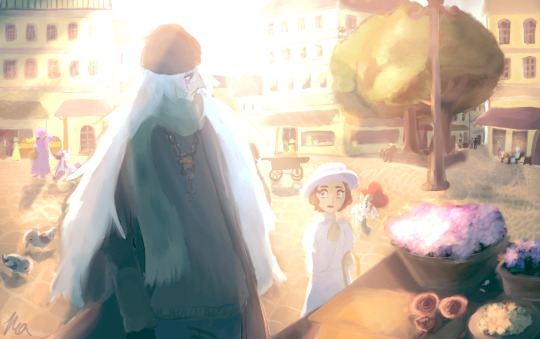
Flâneur
What if AZ is seen wandering in the city lol. Might not happen, may happen, who knows.
Short story I randomly made up for no reason if anyone wants to read based on this art (it's not the best but I wanted to indulge in my thoughts):
He wandered. It took great effort and time to get around the labyrinth of buildings. It did not help that his aged senses struggled with grasping all the novelties he had never seen before in his lifetime, nor did it help that hundreds of curious gazes and whispers accompanied him all the way through.
He had been well used to eye contact; not because of his height, but rather because of his status and duties he once held. Though now he was no more than a lost empty shell of a man, merely equipped with a heavy heart and a luggage full of harrowing memories and bygone knowledge that seemed of no use here.
He was a nobody, yet his presence was pronounced. Aside from his stature, his ragged, dull-coloured outfit and his long, unkempt white hair contrasted greatly with the finely made dresses and suits worn by the inhabitants of this great megalopolis. He stood out as a sore thumb, a prickly weed amidst a garden of small colorful flowers. Even though this place was formerly his home, he only became a stranger, a foreigner both in time and space.
Shunning the looks, gasps and hurried whispers he had garnered, he marched on, with no destination set in mind. An old habit that had turned into a lifelong custom - an eternal wayfarer he had become and identified himself as, since he had no home to return to. It had been long gone, washed away by the tides of time.
He could not help but admire just how the place brimmed with life - the way the afternoon golden sunlight poured down on the wide paved streets and avenues, where people chattered and strolled about, carrying bags full of goods purchased from the market stands. Carriages rocked and passed by, along with carts loaded with supplies of organic products. Pidoves pecked on bread crumbs at every chance they could get.
The longer he observed, his mind stirred up thoughts and ideas and imagination of all sorts. He squeezed his eyes shut for a moment as he saw himself opening up the mass contraption, unleashing a huge brilliant beam of light that pierced through the clouds, the skies, to the heavens above, soon to scorch upon the earth. Destruction was his legacy, forever engraved onto his name, a grave sin of his that took the form of a key that he long bore for centuries. The effects of his crime more or less tagged him everywhere, lurking around within his shadow.
It haunted him.
He took a deep breath and doddled the other way, searching for a place to sit. His legs needed a break and so did his mind. He continued onwards until a fragrant scent reached his senses, causing him to stop in his tracks. Taking a closer look, he found a cart stocked with motleys of blooming flowers. There, a short, petite woman donned in a white dress looked around the pots, still yet to decide on which one to choose.
He couldn't help but draw near, all while memories seeped into his mind where his younger self plucked a handful of flowers, tying them and placing them onto his beloved one as a crown. As he bumbled towards the cart, the short-haired brunette took notice of his presence and backed away from him, startled. He mumbled an apology with a tilt of his head, stepping away from the cart. Once she regained composure, she smiled and invited him to come forward with a flick of her hand, quickly dismissing the awkwardness of the encounter.
"Lovely, aren't they?" she said, leaning towards one pot filled with daffodils and sniffed one. AZ did not expect the lady to speak, yet alone to him out of all people. But he did not want to rudely decline a conversation. He hardly exchanged a conversation with a human being for so long in the countless years of his wandering.
He yearned to regain a sense of humanity again, for he had long lost his sense of self along the way in his descent to desolation.
"...Yes, they certainly are," words parted from his lips. "Fleetingly beautiful. Small, but valuable. Truly Earth's finest wealth." With his gloved, coarsened hand, he gently lifted a drooping rose and over to the lavender. The lady in white's smile remained as she eyed his solemn expression. Her soft gaze held a tender curiosity, free of disdain and wariness, unlike the gawking reactions from others. She turned away briefly, returning to her search for some moments just before re-opening her mouth.
"With all of that cumbersome load and thick garment, you must have traveled a great distance. From where you might be?" She inquired. On her right, a Floette drifted up towards AZ, smiling brightly the same way her partner did. As soon as he caught sight of the Floette, it broke his stolid, stony expression. He tried to utter a response but failed. From the bottom of his stomach, grief resurfaced, securing his throat at a chokehold. Tears blurred his vision and he fluttered his eyes quickly. The Floette tapped on his shoulder in an attempt to reassure him, but a few tears trickled down his pale, hollow-cheeked face.
"I...I apologize. I am suddenly reminded of something," he stuttered and looked away in shame. He had thought he had dried all his tears up after all these years.
Taking a quick gander at her surroundings, the lady beckoned to him to follow and he did so without a complaint until they reached a small alleyway, where ratattas scrambled out about. The lady fumbled in her bag and pulled out a handkerchief. "This should be a better place. I should be the one giving an apology, you did not do any wrongdoing. I am no fan of the public either." He accepted her generous offer and dabbed at his eyes, then gave his thanks.
"In a way, you remind me of my grandfather," she said. "Gentle, soft-spoken and fond of nature." As she spoke, the Floette twirled around AZ in a small happy dance. He cracked a weak smile, then returned to his usual countenance. .
"Do I?" he questioned.
"Your mannerism and tone precisely resemble him. I would have loved for him to meet you, surely you would have been good friends."
He smiled and said nothing. They stood in silence, gazing outward at the end of the alleyway, with small streaks of people flowing in and out of the street.
"It is better for me to go now. I worry that I am troubling you, having meddled with your errands," he said with concern, looking downwards at the lady. "I thank you for your acts of kindness. I truly appreciate it." For every word he said, he meant it. He glanced sideways at the lady's Floette and it dawned on him that he had something with him that he could give to the lady as a return of favor.
AZ dug into his pockets.
"This may not be much, but I hope that you may use these to grow in your garden." He said, extending his long slender arm towards her, handing her a bag of red trillium seeds that he had collected not too long ago in his journey, in hopes of planting along barren areas long affected by the war and the destruction of the ultimate weapon.
"Oh, you are too kind, traveler! I have heard of these before, but never have I expected to possess them!" she placed both of her hands on her chest, gushing. "Do you see this, Fleurine? We can grow more!" she beamed to her companion, who spun around once more in great joy. She turned back forward to him and grinned.
"Before we depart, my name is Acacia for your knowledge, should we ever cross paths and meet again. It was a great pleasure of exchanging some brief pleasantries with you, good sir! May your journey be filled with great tidings!" she waved at him, joined by her Floette, who waved her flower at him.
"Likewise. My name is AZ. If we do not meet again, then let those seeds be a souvenir of me. I wish you a prosperous life ahead," he said."Au revoir, Ehzie!" the young lady called one last time, and made her way back to the market. Waving back and nodding, he trotted off. He managed to make his way to the end of the city, apparently named Lumiose, with hope sprouting within his ancient, grief-ridden heart.
#pokemon fanart#my art#pokemon legends z#pokemon legends za#pokemon legends z-a#pokemon az#AZ#pokemon#pokemon legends#floette#this is probably one of the few times I drew city landscapes... there's some crookedness but nonetheless a worthwhile challenge and practic#I made the girl dress up in white to represent innocence and have a floette accompany her.#kalos#az pokemon
86 notes
·
View notes
Text
My thoughts/theory on the socioeconomic status of the main characters in Danny Phantom;
Tucker Foley - Middle class
It would seem he has been to the Amusement Park that Sam refers to in “Attack of the Killer Garage Sale” (as he knows the price to get it and the food expenses) meaning it is within his reach to go there, but not on a moment’s notice and not frequently, as he declines her offer to go, due to the expenses.
He can afford things like his PDAs, however he mentions in one episode that his current PDA isn’t paid off yet. This shows, his family, like many, can afford to make payments on electronic devices, however do have to pay in monthly installments and it’s a big enough deal that Tucker, at 14, is conscientious of the fact that his device is not paid off yet.
While we only see a few shots of Tucker’s house, it seems to be a fairly normal house and his bedroom appears to be a standard size bedroom (unlike Danny’s and Sam’s which are larger).
Even though he can’t afford unplanned trips to the amusement park and needs to make payments on certain items, he is never shown to be struggling for necessities, such as food and clothes.
This therefore, leads me to the conclusion that the Foleys are a part of the middle class.
————————————————————————
Danny Fenton - Upper Class
In “Attack of the Killer Garage Sale,” Danny’s parents make the statement that, as Fenton’s, they have plenty of money (but tell Danny he needs to earn his)
In “The Ultimate Enemy”, Jazz is seen to be telling her classmates that she has to choose between Hartford, Stanford, and Yale (all of which are expensive schools). Never is the money needed to go to these schools, mentioned as a problem though. And that can’t be blamed on “the show not tackling such issues,” as after Valerie’s family looses their money, Valerie is shown to have to work a job in order to save up for college. Therefore, it seems to be implied that the Fentons can afford to send Jazz to such a school, and still pay for Danny to go to college, two years later. The only loophole to this would be Jazz having a full ride scholarship to the school of her choosing, which is possible, but not probable.
When we see Danny’s house, it on the outside appears to be a normal size two story house, however Danny’s bedroom looks to be bigger than the average bedroom, some shots even making it look like it could be the size of a master bedroom. As well, both him and Jazz (the two kids of the house) are shown to have their own tvs in their bedrooms, something that isn’t standard, especially not at the time the show aired.
His parents have to pay for their ghost hunting equipment somehow.
This all makes it seem likely that Danny is actually from the upper class. It’s just not glaringly obvious, probably because his parents, rather than spend money on typical rich people things, such as fancy homes, ect., choose to spend their money on ghost hunting and lab equipment.
———————————————————————
Sam Manson - The 1%
The Mansons appear to be rich far beyond the Fentons. Sam states that her family is filthy rich. She was also self conscious enough about the amount of money they have, that she kept it hidden from Tucker and Danny for a long time.
Their house is huge. They have a screening room, bowling alley, middle of the night access to delivery services, and are said to be able to afford a plane and/or a yacht, most of which are out of reach to average upper class citizens.
There is an episode where she rhetorically asks why her parents can’t have day jobs, like normal parents, implying that her parents don’t work, at least not in the traditional sense.
She mentions that their money comes from her great grandfather, which tells us that her family’s fortune is “old money,” and there is enough of it that it’s been around for generations (though that fortune has probably grown over the years from being invested in the stock market and such)
With all this in mind, it seems the Manson’s are a part of the 1% or close to it.
109 notes
·
View notes
Text
Rating Good Omens Characters by whether I would employ them in my IRL cafe or not.
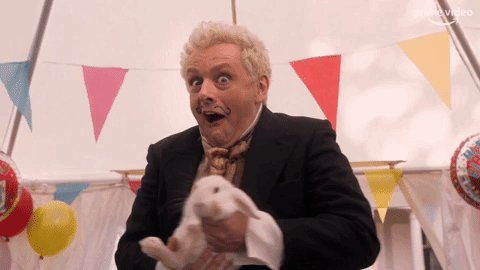
Aziraphale: 100% would employ. He'd be on service, taking orders and running them out. Also, we have a small retail book corner, which I am currently failing at making work, so Aziraphale can also get that going (he'd be great at sourcing books, not so great at selling them). He is not allowed to perform his magic act though, which makes him sad. Sorry Azi.
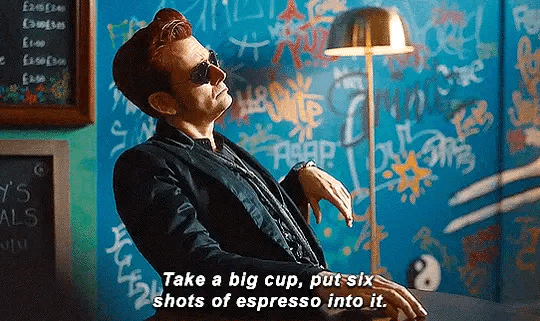
Crowley: Absolutely yes. That (infernal being) knows their coffee. The ywould be a shit-hot barista. Sadly, they get fired after a week because the only person in my life that is snarkier and grumpier than Crowley is my husband (the actual owner of the cafe, I'm just along for the ride). They get into too many arguments and Crowley quits majestically. But we really appreciated the handful of times they yeeted someone off into another dimension when they were difficult customers.
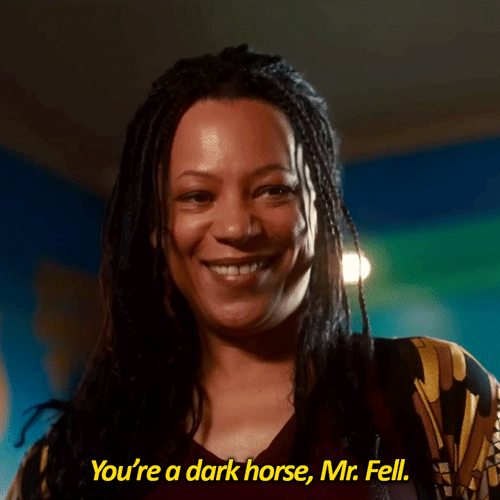
Nina: Obviously. She has the experience for the job (unlike probably all the other characters); and she has the personality for it. She'd be the one that gets all the good gossip from the customers and be able to handle it be stupid busy. She'd be our number one reliable employee. My husband and Nina would also fight and snark but they'd both feel refreshed by it.
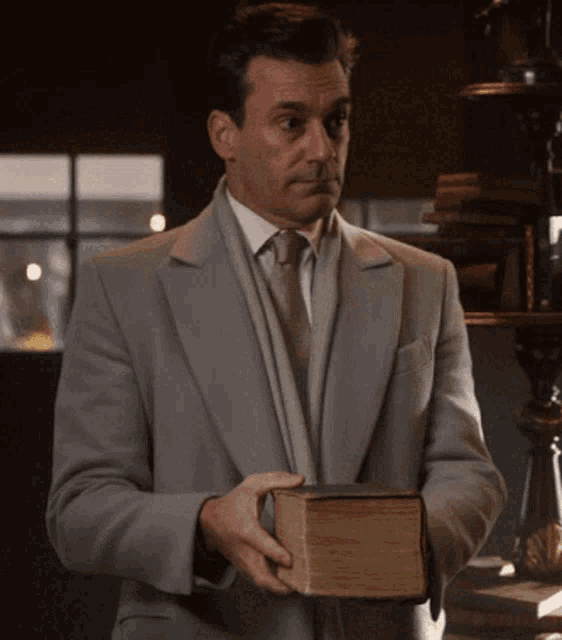
Gabriel: NAH.
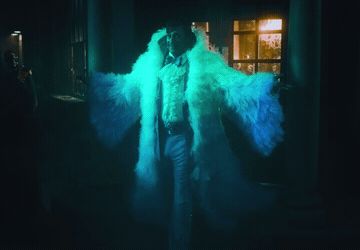
Jim: Also NAH, but we'd probably put him on for a week of work placement through a job placement agency to help him out a bit, because he clearly needs it. Unfortunately, he becomes a liability because he drinks too many hot chocolates on shift and that costs us too much in stock.
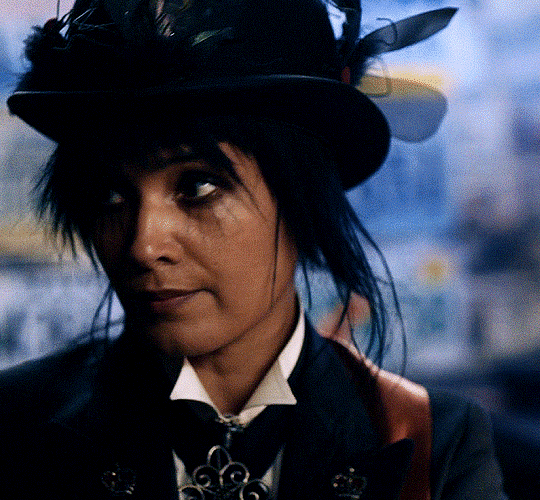
Beezlebub: I'd really like to, but the council food inspector won't allow it with all the flies that come with zir.
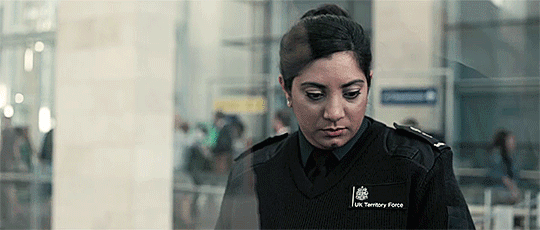
Famine: I think Famine would be a food rep. These people come around from food wholesalers to introduce us to new products. A lot of these seem pretty questionable. I reckon Famine's taken Ciao on the road after the Notpocalypse for something new to do. He's a very polite and enthusiastic rep, but we politely decline his products. The following week, a critical potato shortage hits the market and we have trouble sourcing good quality chips, a key menu item in the cafe.
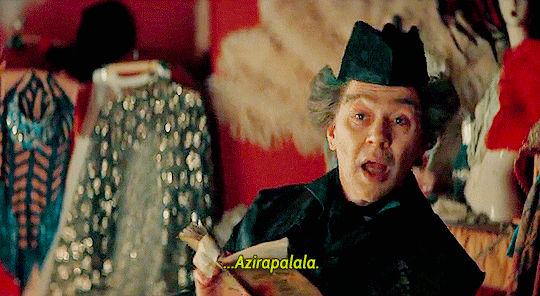
Furfur: I wouldn't give him a job even though he appears to have a solid set of organisational skills, because he personally irritates me. But then he becomes a regular customer, coming in for a large cap everyday, pays in the low-denomination coins, takes up an entire table of six for two hours, and then asks for a bag of coffee to be ground in the middle of the lunch rush.
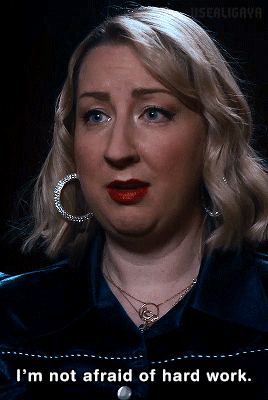
Maggie: she'd be in charge of the playlist. (at least, after Crowley quits in a fury, up until then he'd hogged the spotify and dictated all of the music- and miracles it to continue even when he's not on shift. There's slightly less Queen than there is on our playlist currently). She'd be a day barista one or two days a week. I reckon Maggie and Aziraphale would be the Monday server/barista duo.
Every now and then, the playlist gets possessed for a few hours and none of us can do anything about it but let it pass and see what Crowley's digging musically these days.
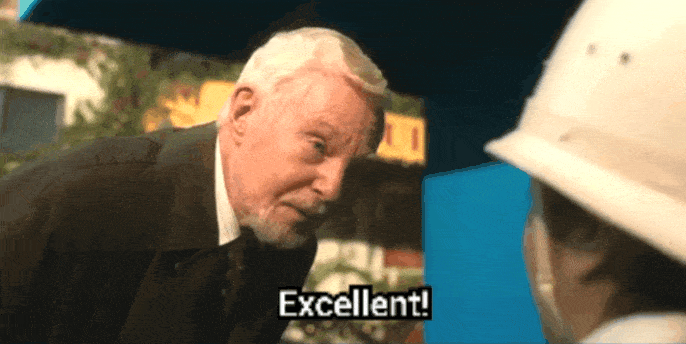
The Metatron: Absolutely not. In fact, he's banned from coming within 500 metres of us and our oat milk supply.
#good omens#good omens 2#good omens au#anthony j crowley#aziraphale#gomens#cafe#i am so bloody proud of this post#I have like a dozen more of these planned
63 notes
·
View notes
Text
Whoops
hello generation loss enjoyers. it has been several months since the release of ranboos project, how have yall been? im going to be insane.
Many folks have known me as the lminal space connosieur, dead malls and fucked up houses in particular being my strongsuit for both their sex appeal and the amount of symbolism they can all hold.
Watching Gen Loss with my friends through a hostage situation was a wonderful experience! upon the reveal of the Showfall Media offices being inside a rented out mall, there was a split second where I was a bit unamused at the lack of effort put into integrating the mall's architecture into the studio's office. There were only a few empty stores being used with at the bare minimum some chairs and desks, half the mall was still closed, the mini maps stands were still up, and the food court's usage as the streamers hub was very just. like. thats a whole ass food court. without the people walking around the only way to actually know what the hel this was being used for was the giant white banner that just said showfall media like a fraternity's house claiming its territory.
But then, as the episode 2 closed out, almost instantly it hit me why. why the mall was still a mall, why there was little to no integration for the set- it was on purpose. it was supposed to just be a studio crammed inside a mall. a dead mall, to be precise.
first lets get into the anatomy of what makes a dead mall dead. Around the 1980's a rise in popularity of the commercial supermalls began to spread, the american consumerist dream was rampant with a greater demand of fast fashion, merchandise, and all kinds of strange trinkets for the average american to waste their money on. It was capitalism's wettest dream, but as the years went on there came a steady decline in popularity. Sometimes the competing businesses ended up putting each other out of stock, maybe the trends began dying off, and in certain areas consistent crime rates drove away costumers.
Then in the mid 2000's the stock market crash ended up pushing several people into poverty, the lower class unable to afford the luxury goods offered at shopping centers. Then online shopping took society in a deathgrip, further pushing away the desire for in-public purchasing. Brands took notice and began selling online-exclusive products. In the late 2010's the sightings of several "dead malls" were on an alltime high, some being left to rot while others were demolished all together in favor of empty concrete spaces.
Corporate response to this was one of two things; continously invest in the "Anchor Stores" (big chain stores like Macys or Forever 21 that brought in more customers, usually stationed at the ends of the mall). Meanwhile the smaller businesses inside would be shut down one by one to save costs, until eventually the anchor stores themselves would be forced to leave. Sometimes the Anchor Stores would leave beforehand, not wanting to waste money investing in a deadend location. the decline is faster, the mall rots quicker. The company sells the lot to the biggest buyer and destroys what little remains.
Then there are times where the mall itself is sold off to another bigger company, in hopes of more funds to rejuvenate the center. Majority of the time the mall will enter a large reconstruction designed to look more appealing, mor modern. In actually, the personality of the malls architecture is stripped like the skin of prey. The colors and vibrant shapes of the late 1900’s, the waterfalls with rocky beds and marbled beige tiles, all replaced in favor of sharp black on white edge and stainless steel fencing. The occasional shrub here or there, maintained by automation. Lights too bright, all glimmer, all space. Sometimes it works, sometimes the mall is reborn as the pinnacle of luxury again! Sometimes it rots in shiny chrome, a corpse dragged along in the hopes of attracting attention. All it does is stink and bloat, a miserable display.
I hope you begin to catch what im saying.
In Generation Loss, the Showfield Social Experiments are commentary on streamer culture and the damaging relationship between a content creator & their platform. Visualized by Ranboo being pushed into dangerous scenarios for the sake of entertainment, their disposable friends forced into the flat archetypes the fandoms have labeled them as.
They were all vibrant young folks once, bright with personality and that raw humanity filled with flaws and voice cracks. Shitty microphones and inconsistent uploads, some were barely finishing high school. Then they became big, almost too big. They were characters now, and just like Ranboo’s teammates the perception of them as humans were dumbed down to memorable trademarks. Streamers and Content Creators alike had to be marketable now, and when the time comes where they lost their popularity sometimes they sign off to groups and organizations to help boost them up again. They are stripped of their rawness again. Theres a reason their artforms are called “content”.
So it makes sense that Showfall Media, the personification of the content creators downfall, would do the same to a Mall. The corpse of the center is repurposed loosely to fit the studios purpose. It is empty, it is hollow, it is dead. Low costs, big risks- just like Gen Loss Ranboo.
basically
Content Creators are Dead Malls.
#this is gonna be the only gen loss post i make in a While since im doin cowboy au stuff#but erm <33#i love dead malls. somuch#\sorry ranboo for looking too deep into thisi AURAGH#generation loss#ranboo#genloss ranboo#gl ranboo#gen loss#dead malls
142 notes
·
View notes
Text
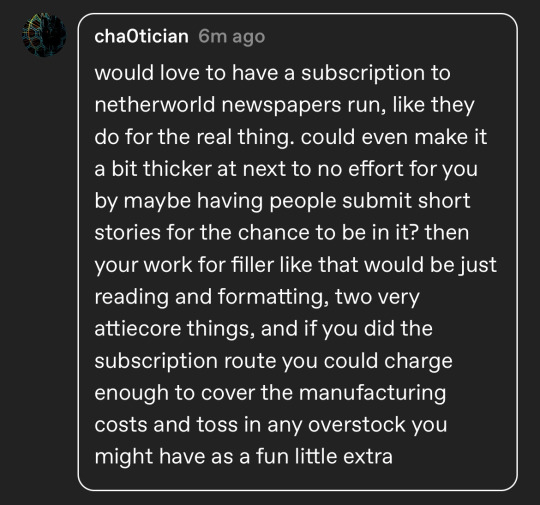
@cha0tician when I was Evil Supply Co., we had a newspaper for nearly two years.
Physically printed on large paper. It was part of a subscription box — Mister Ghost’s Highly Enviable Monthly Parcel of Simple Yet Amazing Wonderments
(Fun fact I came up with that name at a bar in one go and did not edit it — it was the pure first draft)
This was a 4 page (1 sheet of paper front/back) and folded into 11x14.
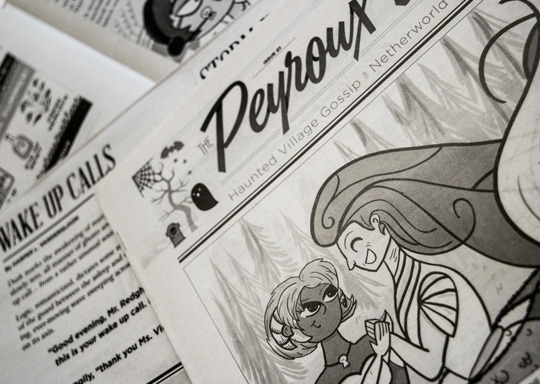
Subscription billing services add costs to the already base $0.30 + 2.9% processing of cards (fairly industry standard pricing), making inexpensive products affordable.
Two sheets of letter sized paper and a thin envelope is roughly one ounce, so a newspaper is probably 2 or even 4, driving up postage considerably.
Even printed black and white (instead of color) the pricing was difficult.
Newspaper ages quick (it’s very acidic) so back stock decays fairly rapidly…

…and this one trick (storing bundles of newspaper) is key to driving your studio-mates wild with passion for you!
The problem with having submissions is two fold — ensuring originality (vs stealth plagiarism) and having a clear focus on the stories.
My stories are very focused and narrow… it’s one of the reasons I change/am changing the name of the company.
A lot of people saw ESC and walked in the digital door looking for true crime and/or horror and got queer monster utopia and were disappointed. Which is fair with the name, and so in this second act I want to give a more straightforward “this is who we are and what we do.”
It’s all a really careful balance.
Going back to the pricing a moment — if the retail price is even as high as $5, after processing fees and postage, it’s maybe $0.50/issue profit into the coffers to keep the company going.
Miss one deadline (as a subscription your deadlines are right, and printing takes 1.5 - 3 weeks) and your customer numbers take huge hits.
Complicates the whole thing.
The last few Mister Ghost boxes ran late because of all the above, and timed with an industry decline of subscription boxes, hurt the whole company bad.
Advertising is… tricky. I would have to hire someone to exclusively work on ads.

The alternative I am working on is just having it as an occasional promotion.
That cuts out processing fees and taxes (it actually helps taxes as it’s a marketing deduction).
Just every once in awhile, on a non-specified time scale (alleviating all production deadline issues), printing a small run. “Okay the papers come in today, we have 200, so include them in the next 200 orders.”
It’s tricky (what isn’t!) because it’s not going to be “the next 200 orders get…!” because frantic ordering Creates Problems (I don’t want to tell #201 they should have been faster)
I keep coming back to the ideas of surprise and delight.
You won’t see a gnome every time you go to the forest — you won’t see them hardly ever — but once in awhile you will and then it becomes a truly magical day.
So once in awhile maybe you get a newspaper or a small painting or a foil sticker in your order, or you are a customer who hasn’t ordered for us and I say “hey rather than give Google more cash let’s take a month of ad budget and print glow in the dark stickers and send to people.”
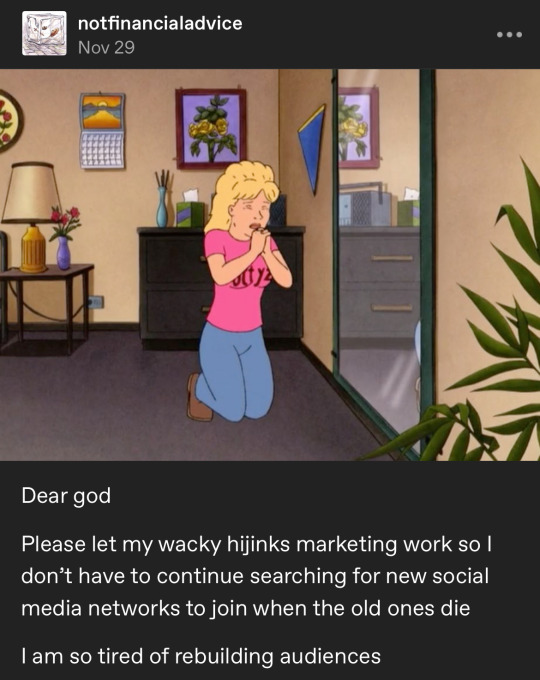
(This is from my business ramble side blog)
I don’t know if “surprise and delight” will be effective marketing.
Maybe it is but it’s too expensive to keep up and it ends up folding the company entirely.
Maybe it’s wildly successful and we continue to survive to make the world weirder.
I want to be honest and open on any public domain research and development rambles that they easily could fail — have a significant chance of it. There are no guarantees, at all, that any of this will work.
It has to be said “the reason these things are not common is because the risk is, to put it mildly, extremely high.”
Without this honesty I am nothing more than a snake oil salesman peddling false hope about making the world a weirder and more fun place.

But what if it does work?
My risk tolerance in business is…
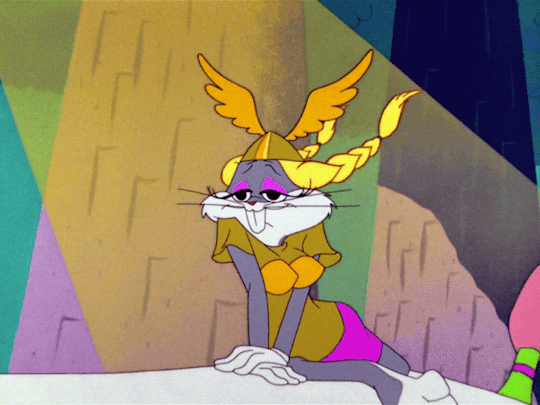
… significant.
This makes me fun to shop with but, hm, complicated, to invest in — which is why i don’t take investors, and when folks kindly offer to toss a few bucks to help us get going, I decline and ask them to shop at an artist store who they have always meant to buy something at but always forget.
I am uncomfortable enough with “we are going to launch.. someday!” — I cannot stand the thought of taking possession of someone’s money without clear lines of “you will get X by Y day.”
All of this is a massive, significant, frequently overwhelming risk.
But.
But!

If it does end up working?
It’s going to be magnificent.
I work on this company because doing this work makes me more “me” than if I didn’t. It’s part of my fabric.
These public domain research and development posts (and future blog versions which can go into more detail) are my way of (hopefully) giving back.
I can’t make a subscription newspaper work but maybe someone else can and then I get to subscribe to it and my world gets weirder because I can read it ;)
But
Whenever I go down these paths
I always want to be very careful and explicit:
Very few things are impossible
Most things are more difficult than they seem
I don’t have all the answers but I might be able to help start the conversations that get someone closer to them
41 notes
·
View notes
Text
Leading Thieves Say Millennials and Zoomers "Ruining the Crime Industry"
A variety of criminals have spoken out over the past few weeks, saying that crime just doesn't pay like it used to because Millennials and Gen-Z-ers are so broke, they have nothing of value to steal.
Stephen "Fingers" Gilligan, Pickpocket: Pickpocketing has been on the decline in America for a while, but it's getting ridiculous now. Nobody carries cash anymore, and even cards aren't paying out. The other day I stole a wallet with five debit cards, and all but one of them declined. The last one had just enough to buy a Sierra Mist from a vending machine. That was my second best score all week. The best was a $40 Olive Garden gift card and a crumpled, discolored $5 bill that I had to use archeological techniques to retrieve without it disintegrating in my hand.
Burt Crustman, Mugger: Man, nobody walks through dark alleys at night since the pandemic hit, and when they do? Jackshit. The only valuable anyone under 40's got on them these days is their phone. Admittedly lotsa people have $3000 phones, but you know what the market for fencing iPhones is like? It's shit! Everybody's buying new phones because their phone's the only nice thing they can afford!
Monty Derailleur, Bike Thief: Well the bike theft business would be going good, if people ever used the bikes they bought. The sales are high, but the fact of the matter is, the bike lanes around here are shitty or nonexistent, there's no room to take them on the bus, and there's no bike racks so everybody knows it's gonna get stolen.
Jerry Rigby, Car Thief: I don't know what you're talking about, Grand Theft Auto is booming. There's $75,000 pickups, $60,000 SUVs, $100,000 Teslas, and most people can't even afford to buy a used car legally so fencing's never been easier. The reason it's hard for those of us in the business is twofold. First, too many people living out of their cars. Second, the competition. You see a nice car parked somewhere, you gotta be on it like that, or the fucking illegal towing rackets will beat you to it. It's nearly impossible to make a living as an independent car thief.
Dwayne Pipe, Burglar: The only reason to be breaking and entering in the post-Pandemic years if to use somebody's shower. I swear to god, half the time when I break into a place, the only furniture is a mattress on the floor and a mid-sized computer monitor as a TV, and those are only good for scrap because with planned obsolescence the way it is, they have a life expectancy of about 6 weeks after theft. To be honest with you, I'm running a loss on most jobs. The only reason I haven't gone straight is because all the legal jobs pay jackshit too. That, and I really like replacing people's family photos with pictures of Nicholas Cage.
Brittlyghn McKannyck, Shoplifter: Shoplifting these days is a hobby, not a career. Half the time the stores are too understaffed to even stock the shelves, and if they're not, everything's locked up. I had to get a guy to unlock a magnetic tag on a box of Crispix the other day. If I didn't live with my parents, there's absolutely no way shoplifting full time would be viable.
Norman Gore, Master Hacker and Identity Thief: Scamming people out of their financial info or cracking passwords has never been easier, but the scores just aren't worth it. I keep getting into bank accounts that pending overdraft fees. It's pathetic. I have to leave the lights off so my hacker den's only lit by the monitors, and type on three or four keyboards at once to hack enough people to make ends meet.
Jack Gazebo, Digital Pirate: Oh my fucking God, people, stop paying for streaming! Learn to torrent! I'm telling you, man, this generation just doesn't have the technological literacy to pirate media.
Captain Tom Stillcutt, Analog Pirate: Let me tell ye something, matey, it be a sad day for piracy. No more galleons laden low with gold doubloons, rum, and exotic spices, nay, it be all scurvy container ships full o' mass produced plastic now. Me last prize was a forty foot container loaded full of over a hundred thousand Funko Pops, en route from the East Indies. The worst part of it was as the cap'n I gets a double share o' the booty, whether I want it or not. I've been makin' one walk the plank every day, and my cabin's still full of the blasted things. Shiver my timbers, I hate these damned Zoomers! At least the ones in me crew are happy.
Geraldo Cardamom IV, Gentleman Thief: The economy's just horrible for heists these days. Art heists? Jewelry theft? All the rich idiots are blowing their money on crypto, NFTs, and custom furniture from hipster woodworking YouTubers. Nobody just has a gallery in their house with priceless antiques in glass cases below a conveniently placed skylight, or millions of dollars in cash and gold bullion in vaults behind secret doors with seven different elaborate locking mechanisms anymore. Nobody secures their valuables with networks of criss crossing laser motion sensors. The only guys with that kind of money are assholes like Jeff Bezos and Elon Musk, and they don't have the sense of style for that. They just hire a bunch of assholes with guns.
Carmen San Diego, Legend: You must be joking, right? The reason I retired is because the infrastructure in this country is so dilapidated it's impossible to move it without it disintegrating. My last heist was "stealing" the World's Largest Pothole in Lansing, Michigan. I lifted the entire six lane wide, fifteen foot deep pothole out of the ground, disassembled it, and shipped it across the country to a warehouse in Las Vegas, then filled in the hole with pristine asphalt so it looked like it was never there. Nobody investigated. Nobody came after me. The city threw a parade in my honor. It didn't even take a month before my record holding pothole was dethroned by one in Cleveland, leaving me with nothing but a bunch of dirt, crumbling asphalt, and broken dreams. That's when I realized it was time to call it quits. Well, maybe the Bass Pro Shops Pyramid, but it already looks stupid enough in the middle of Tennessee that the only way stealing it would be funny is if I put it in the original Memphis.
31 notes
·
View notes
Text
the year is 2048. a smiling young farmer in a power wheelchair sells me the biggest bag of muesli I've ever seen out of a market stall built from repurposed drone parts. he sees the toys in my reusable bag and insists on throwing in some homemade cat treats “on the house”. I get an email from the wind farm: they've deposited another $20 in my account for using up excess electricity outside peak hours, so I decide to splurge on some flavoured honey and boba tea. I tell the barista I feel like a billionaire today and she smiles politely and asks me what a “billionaire” is. I run into an old friend handing out free insulin packets and we spend some time catching up. I've got a new gig at the organ printing depot and she's on rotating job assignments with the Workers' Cooperative: this month is insulin distribution, last month was reprogramming robot dogs as automated planters for the pollinator farm, next month she'll be on a work crew converting the old football stadium into a greenhouse. She's been sleeping in the park (by choice, of course, the local housing co-op has tons of suites open) but the climate bureau is cloud seeding this weekend and we're expecting a lot of rain. I invite her to crash at my place. She smiles and says she would like that. Our trolley ride home is briefly halted by an impromptu pride parade and the sun is setting as we pass the ivy-covered sign advertising the golf course that once existed where my neighbourhood now stands. A friendly technician explains she's just finished replacing the faulty router on our block so we can use the public WiFi again. I start a fire in the fireplace and sort through some mail: a postcard from one of my exes in Hawaii installing carbon dioxide scrubbers that double as frog habitats, a flyer for a music recital at the rehab clinic, and a letter from International Blood Services declining my donation because they are fully stocked. I ask my Global Music Archive uplink to select a random decade, country and genre and it starts a playlist while the two of us snuggle together on the couch under a hand-knitted blanket and my cat makes biscuits on top. On TV, a newscaster says global temperatures are at their lowest point in the last 40 years. I flip channels to some standup comedian saying kids these days don't know how to conceal when they're high because there's no cops anymore. We laugh until the rain softly falling on the roof lulls us to sleep.
#microfiction#hope for the future#a post by me™#this deserved its own post i hope it brightens someone's day
44 notes
·
View notes
Text
More Clownery!
I'm in the mood for some clownery! 🤡 I know nothing about the TV industry beyond the fact that Zaslav really sucks at it, so I can make baseless theories to cheer myself along.
In our clownery, I don't think the strikes have been mentioned a lot? There is this Q3 2023 Earnings Call from WBD with this Zaslav (?) quote:
And while the third quarter subscriber numbers were impacted by one of our lightest original content schedules in years, in part due to the strike constraints that compelled us to delay some releases, as well as a further decline in the overlapping Discovery Plus subscriber base, which we expected and discussed with you.
This was in response to 700k subscriber loss Max had in Q3 2023, and it makes the cancellation of every original show just a headscratcher. WBD is not alone in delaying project releases. The strike is going to have an impact that won't resolve in a few months, and streamers are going to continue to have light original content schedules. (I know I just saw an article about Netflix using almost the exact same quote; I tried to find it, but it was a super depressing "Netflix cancels everything" pool I entered, and I don't need it in my clownery.)
What's the clownery point, though? Streamers have a large gap in original programming that they usually don't. When we talk about other renewal campaigns and try to compare to them, most of those campaigns are not coming directly after an event causing complaints of "light original content schedules." They're in more of need of original content than usual, and there is this show that's in the top 0.2% of demand, a loud fanbase that does effective marketing for free (remember, OFMD wasn't marketed AT ALL and beat MCU and Star Wars shows with S1), untapped international markets and merchandizing opportunities, a strong Gen Z demographic, and strong diverse representation. It's a slam dunk hit in a time that streamers need to pad their schedules. Something has to go terribly wrong for there to be no pick up (and, goodness, in our world do things go terribly wrong often).
Max is a failure of a platform, and "The Numbers" that Bloys was talking about was that Max itself doesn't have resources, methinks. I wonder now is it even going to be a platform in two years. They could have renewed OFMD, got it into production later this year, then needed a year in post, and... would Max even be there? Max as a platform isn't even a year old, and WBD hasn't had hold of HBO for two years yet. Here is a list of Max original programming, and just looking at a list of those things that premiered 2022 or later, the renewal rate is awful. OFMD was its top show (or easy Top 3... which they would release "The Numbers"), and it couldn't survive. They don't make many series, and they can't even support what they do make. Quality of the shows isn't the issue: it's that Max itself is a failure. We saw that funny article about WBD's stock downgrade, and it said that WBD should license Game of Thrones and Friends out, and frankly, if they do that, that's the end of Max as a platform. That's the bulk of their traffic, and people aren't paying an extra $20/mo for background noise reality TV when YouTube, Instagram, TikTok, etc. are right there.
I stand by this 4evah:

18 notes
·
View notes
Text
all the arguing for AI art because other dweebs you respect have collectively decided it's a neat tool (and I'm not disputing that it is) is going to look really stupid in 10 years. capitalism uses new tools to further its own ends, and the ends of capitalism in the art and design space are "pay artists less", "arrogate the fruits of creative work to brand owners", and "homogenize as much as possible".
in ten years, if AI art isn't a flash in the pan or strangled in the crib (both seem increasingly unlikely), my conservative estimation on the results will be:
- pro design pay rates will stagnate at their current levels in real dollars, losing out to inflation gradually until the sort of person who gets published in magazines or commissioned to design storefront art will not be able to pay rent alone even on a good month
- freelance rates will, considered hourly, likely decline in real dollars between now and 2030, making work outside of highly specialized fields like furry erotica or technical illustration more or less uneconomical
- at least temporarily, there will be a profound self-similarity in the visual language of new art, and cultural production in the 2020s and 2030s will come to be regarded as a nadir of artistic taste, think "magazine ads from the 1950s" and you won't be far off
- bigoted decisions will continue to be fake-outsourced to machines, and AI art will become both a tool and driver for them. as a trivial example, every model i've played with has had way more trouble generating recognizable or consistent images of Black celebrities than non-Black ones; it's trivial to imagine this amplifying existing biases in stock photography or art even without any actively malicious intent on anyone's part, and you're kidding yourself if you think the market for commercial art isn't kinda racist already. also, just thinking about how the existing inadequacies in trans/queer representation will be amplified to funhouse mirror proportions makes my brain hurt
- in all likelihood, the better-trained AI is to make art, the better-trained it will be to recognize art, which means we are approaching a point at which it will be both legally and technologically feasible for Disney et al to start suing/C&Ding children for fanart more or less automatically, making websites like Deviantart and Tumblr - and art aggregators more generally - difficult or punitive to run. i'm not confident that point is between now and 2033 but i'm confident it will happen within my lifetime
105 notes
·
View notes
Text
A Nebraska lawmaker whose north Omaha district has struggled for years with a housing shortage is pushing a bill that, if passed, could make Nebraska the first in the country to forbid out-of-state hedge funds and other corporate entities from buying up single-family properties.
Sen. Justin Wayne’s bill echoes legislative efforts in other states and in Congress to curtail corporate amassing of single-family homes, which critics say has helped cause the price of homes, rent and real estate taxes to soar in recent years. Wayne said that has been the case in his district, where an Ohio corporation has bought more than 150 single-family homes in recent years — often pushing out individual homebuyers with all-cash offers. The company then rents out the homes.
Experts say the scarcity of homes for purchase can be blamed on a multitude of factors, including sky-high mortgage interest rates and years of underbuilding modest homes.
RISING RENT PRICES PUSH RECORD NUMBER OF AMERICANS TOWARD HOUSING CRISIS, PROMPTING LEGISLATIVE ACTION
Wayne's bill offers few specifics. It consists of a single sentence that says a corporation, hedge fund or other business may not buy single-family housing in Nebraska unless it's located in and its principal members live in Nebraska.
"The aim of this is to preserve Nebraska's limited existing housing stock for Nebraskans," Wayne said this week at a committee hearing where he presented the bill. "If we did this, we would be the first state in the country to take this issue seriously and address the problem."
A 14-page bill dubbed the End Hedge Fund Control of American Homes Act has been introduced in both chambers of Congress and would impose a 10-year deadline for hedge funds to sell off the single-family homes they own and, until they do, would saddle those investment trusts with hefty taxes. In turn, those tax penalties would be used to help people put down payments on the divested homes.
Democratic lawmakers in a number of other states have introduced similar bills, including in Minnesota, Indiana, North Carolina and Texas, but those bills have either stalled or failed.
The housing squeeze coming from out-of-state corporate interests isn't just an Omaha problem, said Wayne Mortensen, director of a Lincoln-based affordable housing developer called NeighborWorks Lincoln.
Mortensen said the recession of 2008 and, more recently, the economic downturn driven by the COVID-19 pandemic made single-family housing a more attractive corporate investment than bond markets.
"When that became the case, housing was commoditized and became just like trading any stock," he said. "Those outside investors are solely interested in how much value they can extract from the Lincoln housing market."
Those corporations often invest no upkeep in the homes, he said.
"And as a result of that, we're seeing incredible dilapidation and housing decline in many of our neighborhoods because of these absentee landlords that have no accountability to the local communities," Mortensen said.
Currently, about 13% of single-family homes in Lincoln are owned by out-of-state corporate firms, he said.
As in other states, Wayne's bill likely faces an uphill slog in the deep red state of Nebraska. At Monday's hearing before the Banking, Insurance and Commerce Committee, several Republican lawmakers acknowledged a statewide housing shortage, but they cast doubt on Wayne's solution.
"You know, you can set up shell companies, you set up different layers of ownership. You can move your domicile base. There's just a ton of workarounds here," Omaha Sen. Brad von Gillern said. "I also — as just as a pure capitalist — fundamentally oppose the idea."
14 notes
·
View notes
Text

“Oh Freddie was so funny! There were many occasions when he was just hysterical. When they were filming ‘I Want To Break Free,’ the dressing rooms were upstairs in the film studio, and all you could hear for a while was Freddie’s screaming laughter as they all got ready! Then he appeared at the top of the stairs, ready to come down, and they were metal stairs. He was wearing the PVC skirt, black fishnet stockings, a pink top, black wig and really high, six-inch heels. He tottered to the top of the stairs, took one look at them and said, “I cannot possibly do stairs in these ‘effing’ heels darlings, I’ll break my neck!” He flounced back in the dressing room and appeared again moments later in a far more sensible height of two-inches!”
Jacky Smith (Gunn) - Manager of The Official Queen Fan Club since 1982 - For over 40 years!
The interview is from April 2011
She also co-authored ‘Queen As It Began’ with super-fan Jim Jenkins
“This video was a brave tongue-in-cheek move by the band and was well received - except in America, and as they declined to do an alternative video for the US market it was an indication of the beginning of the end for the band’s popularity there. This was tragic as ‘The Works’ was a very good album and the live show that accompanied it was probably the band’s best, and deserved to be seen by America.”
Extract from Peter Hince ‘Queen Unseen’
Freddie was set to shave off his mustache but the director, David Mallet told him to leave it for the drag sequence as he thought it was funny. (He shaved it off in April for the ballet sequence)
This lovely Picture is from the set, “I Want To Break Free” March 1984
8 notes
·
View notes